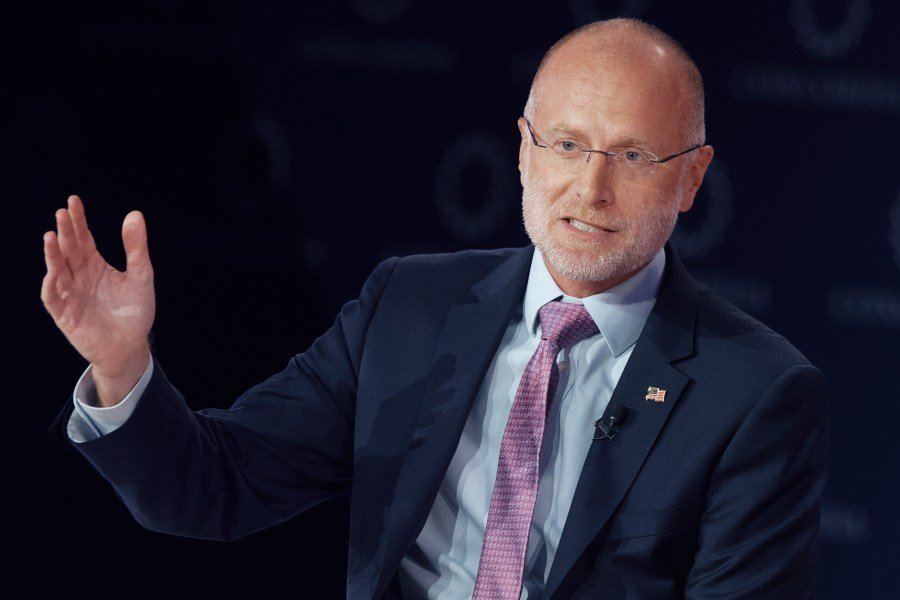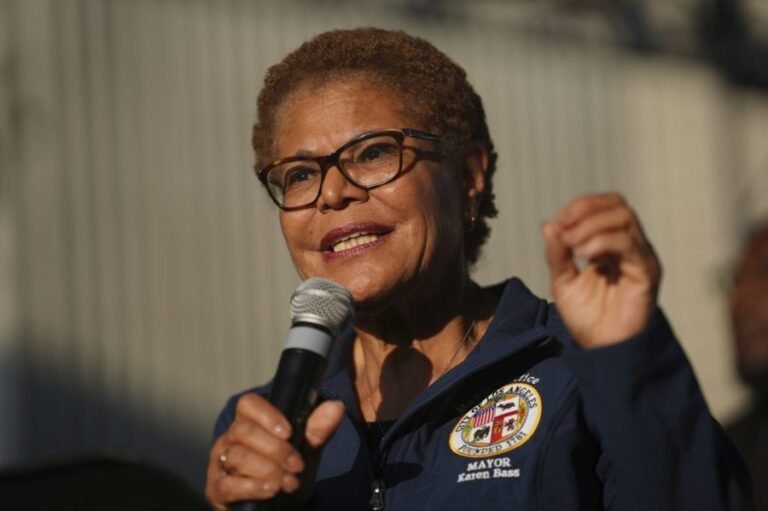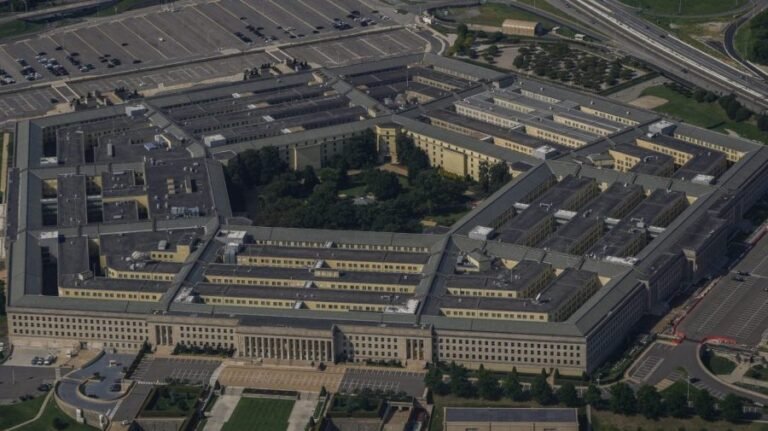
The left’s political operatives have launched a relentless campaign to vilify FCC Chairman Brendan Carr. He has become a target, and supposedly the number one threat to democracy, simply because he empowered small local broadcast stations to comply with statutory requirements.
Carr’s critics paint him as censor-in-chief — ignoring Joe Biden’s massive censorship initiatives. But the facts tell a different story. Carr is simply upholding longstanding federal obligations to ensure that our public airwaves serve all Americans, not just a partisan sliver.
Broadcast television is fundamentally different from cable, streaming or podcasting. Local affiliates of ABC, NBC and CBS operate on publicly owned frequencies, granted free of charge by the FCC. This is no small privilege — it is a massive public subsidy, akin to the taxpayer funding that supported NPR and PBS.
When Congress created the Corporation for Public Broadcasting to fund NPR and PBS, it required “strict adherence to objectivity and balance in all programming.” The goal was simple: taxpayer-funded media should never become party propaganda.
NPR and PBS disagreed. They took the subsidies, ignored the statute and cried censorship when Congress finally pulled the plug on their billion-dollar earmark. Ending the taxpayer-fueled gravy train was the only way to address their serial misconduct.
Although most broadcast affiliates aren’t owned by the networks, they are often pressured to air increasingly partisan network programming. But stations from Birmingham to Billings, and from Pittsburgh, Pa. to Pittsburg, Kan. have all learned the lessons of NPR and PBS.
Fortunately, Carr’s FCC has offered these stations something they have long lacked: the clarity and confidence to say no to the networks.
The need for it was obvious. In the final five months of the 2024 campaign, ABC’s political coverage was 100 percent positive for Kamala Harris and 94 percent negative for Donald Trump. Across the Big Three, it averaged 85 percent negative for Trump and 78 percent positive for Harris.
These aren’t news operations — they are liberal megaphones with network logos.
Highlighting this imbalance isn’t a call for conservative programming or partisan retaliation. It is a reminder of the deal these broadcasters made: free use of a public resource in exchange for serving the full American public — not just a favored slice.
Carr’s critics scream “censorship.” But no one is being silenced. Local stations have always had the right to reject network content that misleads the public or doesn’t reflect community standards. Carr is simply reminding them.
After Kimmel falsely implied that Charlie Kirk’s killer had been a Trump supporter — in fact, the attacker had a history of left-wing extremism — several local affiliates declined to air Kimmel’s show. Predictably, media headlines blamed Carr. But it wasn’t Carr who suspended Kimmel. It was Disney CEO Bob Iger, who doubtless also noticed Kimmel’s cratering ratings.
Carr merely pointed out that “news distortion” could create a valid basis for FCC action. Critics accuse Carr of “right-wing cancel culture.” This, from the same crowd that tried to put FCC “monitors” into newsrooms during the Obama administration. And when that failed, they then spent years perfecting the art of cancellation — ruining careers, banning books, purging dissenters from platforms and socially exiling anyone who refused to chant the latest leftist slogan.
Now, when private companies respond to their customers and communities by holding entertainers accountable, the rules change. Suddenly, it’s “censorship.” But Carr’s recitation of the law wasn’t optional. Congress delegated that authority to the FCC, and he was doing exactly what the statute demanded.
Policymakers in Washington, who are taking a fresh look at the FCC’s role relative to broadcasters, have a choice. They can either thank Carr for his balanced efforts, or they can repeal the “public interest” standard and auction off the airwaves to the highest bidder. Many would certainly prefer to let the free market decide, but that’s not what the left wants.
What they want is far worse: a publicly subsidized, partisan media complex that operates as a de facto arm of the Democratic Party, immune from accountability, cloaked in legality and funded by taxpayers. That, of course, is precisely what the First Amendment was designed to prevent.
If Congress does not want to privatize the spectrum, it should at least strengthen protections for local affiliates, clarify their rights to reject noncompliant content and ensure that the FCC remains a neutral arbiter — not a silent partner in ideological capture. If the Big Three networks don’t like this approach, they are free to walk away from their giant federal subsidies and sell off their stakes in local broadcast stations.
Dan Schneider is vice president for free speech at the Media Research Center.


